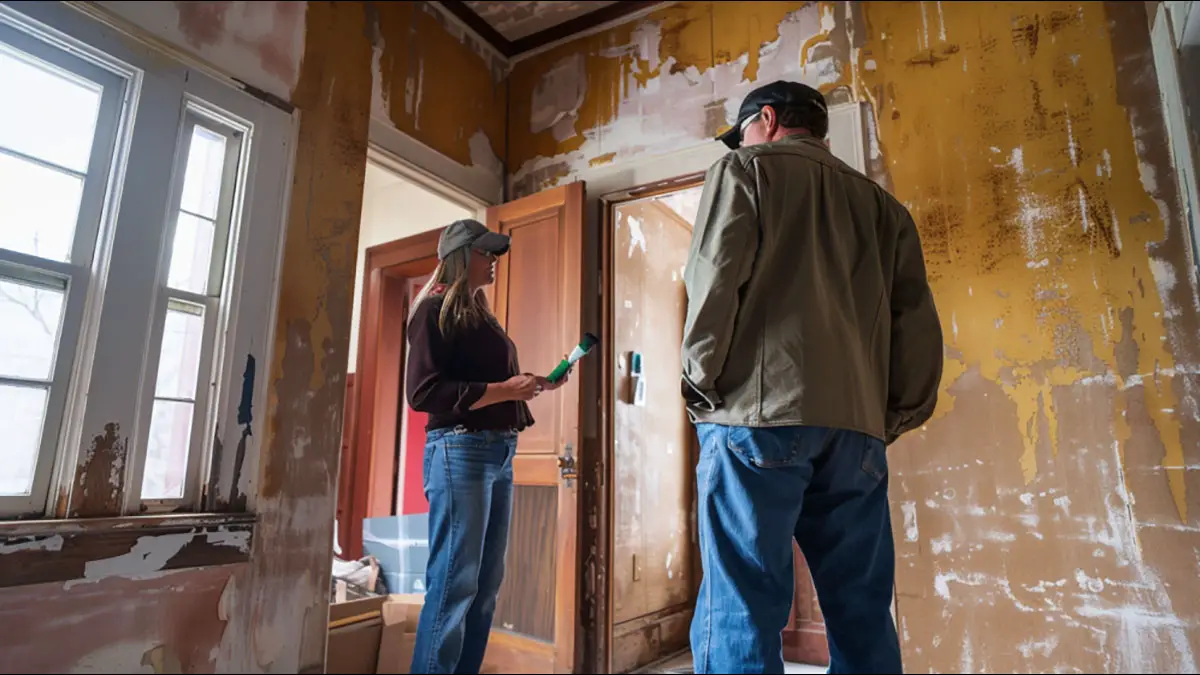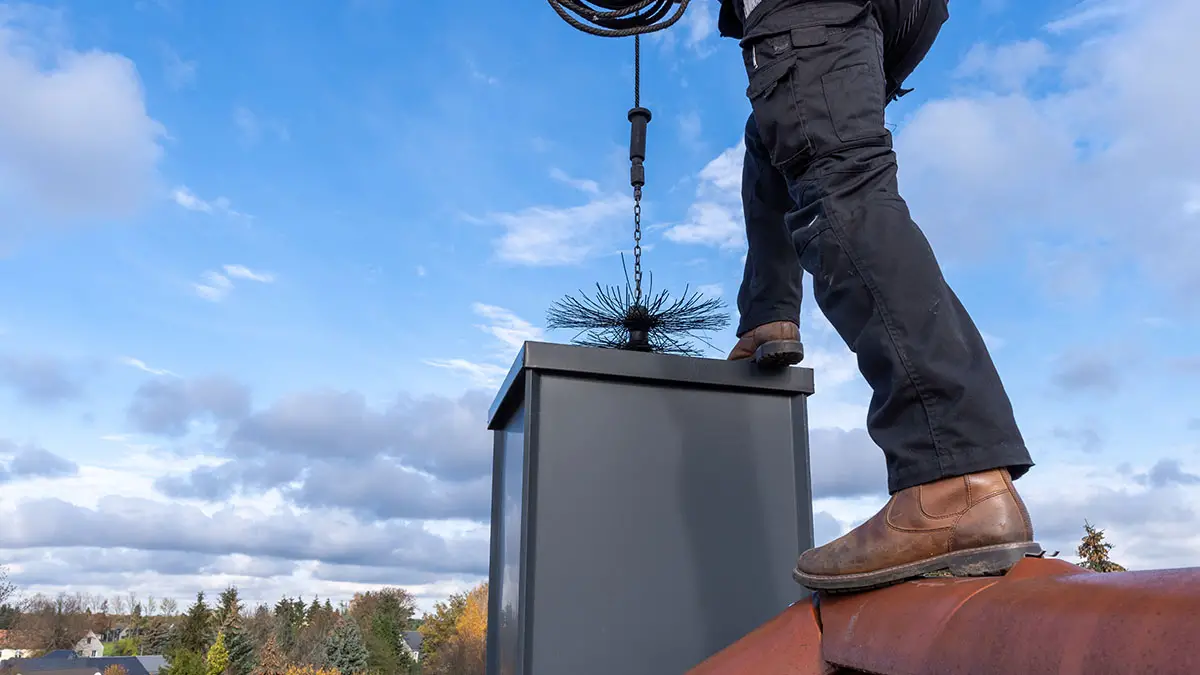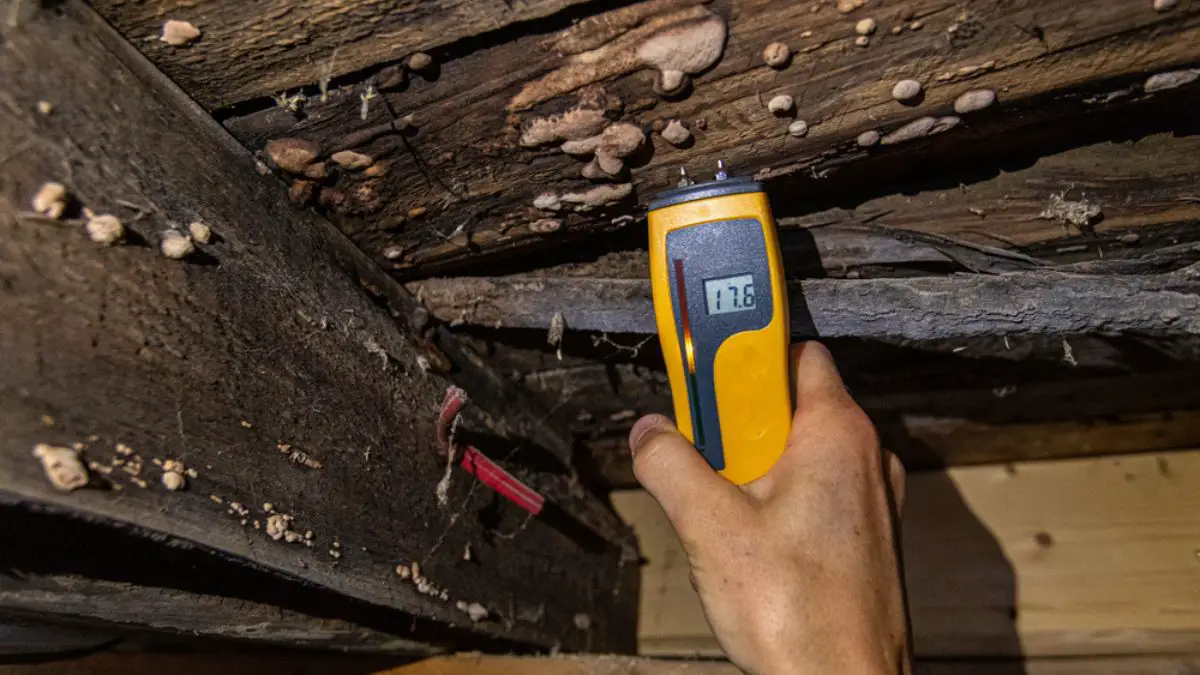A pre-listing inspection (aka pre-sale inspection) is a proactive step to evaluate the condition of your property before listing it for sale. This inspection is a powerful tool in the home-selling process.
What is a Pre-Listing Inspection?
- It’s a thorough assessment conducted by a professional home inspector before you list your home for sale.
- Unlike a standard home inspection, a pre-sale inspection is initiated by you, the seller, not the buyer.
Why Should Sellers Opt for a Pre-Listing Inspection?
- Gain Transparency: Understand your home’s condition from an unbiased perspective.
- Marketing Material: Make the pre-sale inspection report available to potential homebuyers at open houses to improve engagement and selling points, often leading to faster sales and fewer inspection-related delays.
- Boost Confidence: Address any issues beforehand, reducing surprises during buyer inspections.
- Enhance Negotiation Power: Knowledge about your home’s condition can fortify your stance in price negotiations.
Key Takeaways:
- Proactive Approach: A pre-sale inspection initiated by you as the seller sets the stage for a transparent and efficient selling process.
- Informed Decisions: Understanding the condition of your home allows you to address issues beforehand, price your property accurately, and negotiate effectively.
- Enhanced Buyer Confidence: Providing a pre-inspection report to potential buyers builds trust and can make your home more attractive in a competitive market.
- Financial Prudence: While there is an upfront cost for a pre-sale inspection, it’s an investment that can prevent last-minute negotiations and price reductions.

Importance of Pre-Listing Home Inspections
A pre-listing home inspection is a crucial step when selling your home. Here’s why it’s so important:
Building Trust with Potential Buyers:
- Transparency: Revealing the condition of your home upfront builds trust with buyers.
- Reduced Hesitation: Buyers are more confident, knowing no hidden issues exist.
Streamlining the Selling Process:
- Faster Sales: Homes with pre-listing inspections often sell quicker, as major concerns are already addressed.
- Smoother Negotiations: With known issues resolved, there’s less back-and-forth during the negotiation phase.
Financial Benefits:
- Accurate Pricing: Understanding the pre-sale house inspection status helps set a realistic price.
- Pre-emptive Repairs: Fixing issues found during the pre-inspection can save you from last-minute, costly negotiations. You can complete repairs on your timetable and compare contractor quotes.
Addressing Major Issues Found During Pre-Listing Inspections
- The discovery of significant issues shouldn’t be a cause for immediate concern. Sellers can evaluate these findings for proper resolution strategies.
- Not every issue demands immediate repair; a real estate professional can guide whether certain repairs are essential for sale viability.
- Resolution costs are a joint consideration for both buyer and seller.
Understanding Pre-Inspection Costs
Navigating the financial aspect of a pre-listing home inspection is essential. Here’s what you need to know about how much a pre-sale home inspection costs:
Factors Influencing Cost:
- Size of Home: Larger homes require more inspection time, increasing costs.
- Age and Condition: Older homes or those in poor condition might need a more detailed inspection.
- Location: Costs can vary based on regional pricing and inspector availability.
Cost-Benefit Analysis:
- Short-term Expense: While there’s an upfront cost, it’s an investment in a smoother sale process.
- Long-term Savings: Identifying and fixing problems now can prevent price reductions later.
Average Cost Range:
- The cost mirrors a buyer’s inspection, ranging from $350 to $500, depending on location, home size, and age. It’s a strategic investment, as inspectors with E&O insurance provide a layer of financial and professional security.
- Add specialized inspections like radon testing and septic inspections to cover conditions outside the scope of a standard home inspection.

Pre Inspection vs. Standard Inspection
As a savvy home seller, it’s important to understand the differences between a pre-inspection and a standard inspection. This knowledge empowers you to make informed decisions and effectively prepare for your home sale.
How Pre-Listing Inspections Differ from Buyer Inspections
While the timing and client differ—in this case, the seller initiates the inspection before listing—the scope remains consistent.
A pre-listing inspection thoroughly evaluates major systems and structural elements, including HVAC, electrical, plumbing, roof, siding, doors, and windows. A comprehensive inspection lets sellers clearly understand their property’s condition, offering a strategic advantage before negotiations.
Initiator of the Inspection:
- Pre-Inspection: Initiated by you, the seller, before listing the property.
- Standard Inspection: Typically requested by the buyer after an offer is made.
Purpose and Timing:
- Pre-Inspection: Aims to identify issues early, giving you time to address them before listing.
- Standard Inspection: Conducted to give buyers peace of mind about their purchase.
Outcome and Benefits:
- Pre Inspection:
- Gives you control over repairs and improvements.
- It helps in accurately pricing your home, potentially increasing its value.
- Standard Inspection:
- Influences the buyer’s decision to proceed with the purchase.
- This can lead to renegotiations or requests for repairs.
Impact on the Sale Process:
- Pre Inspection:
- Leads to a more transparent and faster sales process.
- Reduces the likelihood of surprises that can derail a sale.
- Standard Inspection:
- If issues are uncovered, there can be delays or changes in the sale terms.
- It can cause a buyer to walk away if they become spooked.
Steps in Conducting a Pre-Listing Inspection
Conducting a pre-listing inspection is a strategic move in your home-selling journey. Here’s a step-by-step guide to navigating this process effectively:
Choosing the Right Inspector:
- Look for certified inspectors with experience in pre-sale house inspections. NACHI and ASHI are two top resources for certified inspectors.
- Check credentials and read reviews to ensure reliability and expertise.
Scheduling the Inspection:
- Plan to allow time for any necessary repairs before listing.
- Coordinate with the inspector for a convenient time, ensuring full access to your property.
During the Inspection:
- The inspector will examine key areas: structure, systems (electrical, plumbing, HVAC), and exterior and interior conditions.
- You can choose to be present to gain firsthand insights and ask questions.
Understanding the Report:
- After the inspection, you’ll receive a detailed report highlighting any issues.
- Use this report to understand the pre-inspection vs inspection differences in findings.
Addressing Identified Issues:
- Prioritize repairs based on severity and impact on the home’s value.
- Consider minor cosmetic updates to enhance the appeal.
Leveraging the Inspection in Your Listing:
- Use the inspection report to demonstrate transparency and build trust with potential buyers.
- Highlight any repairs or upgrades made post-inspection to increase your home’s marketability.
Pre-Listing Inspection: Pros and Cons
Pre-listing inspections can be financially savvy for sellers. By disclosing known issues early, sellers can integrate these considerations into the listing price, thus streamlining negotiations. Additionally, addressing these issues pre-listing allows for more controlled repair costs.
Deciding on a pre-listing inspection involves weighing its advantages and drawbacks. Let’s explore these to help you make an informed decision:
Pros of Pre-Listing Inspections
- Increased Transparency: Builds trust with potential buyers, showcasing your commitment to honesty.
- More Control Over Repairs: You choose who makes repairs and when possibly at a lower cost than buyer-negotiated repairs.
- Smoother Negotiations: Reduces the likelihood of renegotiations based on the buyer’s inspection findings.
- Potential for Higher Offers: Buyers may be willing to pay more for a home with a clean inspection report.
- Faster Sale Process: Issues are addressed beforehand, leading to fewer obstacles during the sale.
Cons of Pre-Listing Inspections
- Upfront Costs: You bear the initial cost, which varies based on the size and location of your home (pre-inspection cost).
- Potential Discovery of Major Issues: Uncovering significant problems might require substantial repairs or lead to price reductions.
- No Guarantee of Issue-Free Buyer Inspection: Buyers will likely conduct their own inspection, which might reveal different concerns.
- Disclosure Requirements: Any issues found must be disclosed to potential buyers, which could deter some prospects.
What to Expect During a Pre-Sale House Inspection
Understanding what happens during a pre-sale house inspection can help you prepare effectively. Here’s a breakdown of what to expect:
Scope of Inspection:
- Comprehensive assessment of the home’s structure, systems (like electrical, plumbing, HVAC), and overall condition.
- Exterior elements like roofing, siding, and foundation are also evaluated.
Home Inspector’s Role:
- A professional home inspector conducts a thorough examination, often taking several hours.
- They will document the condition, including photographs and notes.
Areas of Focus:
- Key areas include the roof, foundation, HVAC system, electrical setup, plumbing, and any signs of pest infestation or water damage.
- Specific attention to problem-prone areas, depending on the age and type of the property.
Your Role as the Seller:
- Ensure access to all home areas, including the attic, basement, and locked spaces.
- Provide any relevant documentation or information about recent repairs or upgrades.
Receiving the Inspection Report:
- A detailed report will be provided, with descriptions and photographs outlining the findings.
- This report is a crucial tool in the pre-list inspection vs inspection comparison and for potential negotiations.
Post-Inspection Steps:
- Review the report to identify any critical issues that need addressing.
- Consider making repairs or adjustments based on the inspector’s findings to enhance your home’s appeal and value.
How Pre-Inspections Influence House Sales
Pre-inspections play a significant role in the dynamics of selling your home. Their influence extends to various aspects of the sale process, including pricing, negotiations, and buyer perception. Let’s delve into these impacts:
Impact on Pricing and Value
Realistic Pricing:
- A pre-sale inspection clearly shows your home’s condition, helping set a realistic and competitive price.
- Homes with pre-listing inspections might attract higher offers due to perceived transparency and reliability.
Value Enhancement:
- Addressing issues identified in the pre-inspection can enhance your home’s market value.
- Upgrades and repairs can be highlighted as selling points, potentially increasing buyer interest.
The Buyer’s Perspective on Seller-Funded Inspections
For buyers, a seller’s transparency in providing inspection information is invaluable. It offers a clearer understanding of the property’s condition and how this impacts their offer. Sellers disclosing issues upfront can streamline the negotiation process, fostering a more straightforward transaction.
Building Buyer Confidence:
- A pre-inspection report demonstrates openness and honesty, fostering buyer trust.
- Buyers are more likely to feel comfortable making an offer on a home with known and addressed issues.
Reducing Sale Obstacles:
- Pre-emptive identification and resolution of issues minimize the chances of deal-breaking surprises during the buyer’s inspection.
Effect on Sale Process and Negotiations
Streamlined Negotiations:
- With known issues already addressed, there’s less room for negotiation based on inspection findings.
- This clarity can lead to a smoother, quicker sale process.
Reduced Risk of Sale Falling Through:
- Pre-inspections can uncover and resolve issues that might otherwise cause a buyer to back out after their own inspection.
FAQs on Pre-Sale Home Inspections
Addressing frequently asked questions can provide clarity and guidance in your journey as a home seller. Here are some common inquiries about pre-sale home inspections:
Can Pre-Listing Inspections Enhance Real Estate Marketing?
Absolutely. Real estate agents leveraging pre-listing inspections can give buyers confidence in their purchase, similar to the certified pre-owned car market. These inspections can substantiate the seller’s asking price and demonstrate the home’s readiness for purchase.
Sharing Inspection Reports with Buyers: Full Report or Summary?
The decision to share a full report or a summary should be tailored to the situation in consultation with a real estate professional. While summaries often encapsulate critical findings, offering the full report might provide comprehensive insights into the home’s condition, balancing transparency with the need to avoid causing unnecessary alarm.
Would Buyers Still Prefer Their Own Inspection?
Yes, most buyers opt for their own inspection, especially to verify any repairs the seller claims. The choice of inspector, whether the same as the seller’s or a different one, depends on personal preference. An inspector’s objective approach remains constant, regardless of who commissions the inspection, ensuring a fair assessment of the property’s condition.
Can a pre-sale inspection increase my home’s value?
While it doesn’t directly increase value, it can make your home more attractive to buyers, potentially leading to higher offers and a quicker sale. Addressing issues found in the inspection can also prevent price reductions during negotiations.
Is a pre-listing inspection mandatory?
It’s not mandatory, but it’s highly recommended. It gives you an advantage by preparing you for potential buyer concerns and helps set a fair price.
Are pre-list inspection repairs mandatory?
Inspection repairs are not mandatory. You can always sell your home “as is” even if major issues are discovered. However, addressing major and safety issues ensures the property is in good condition and attractive to potential buyers.







